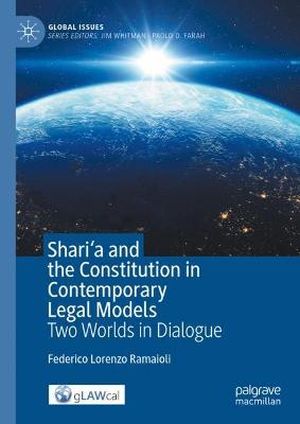
This comparative law book aims at formulating a new analytical approach to constitutional comparisons, assuming as a starting point the different legal perspectives implied in the (Sunni) Islamic outlook on the juridical phenomena and the Western concept of law, with particular reference to constitutionalism.
The volume adopts a wider and comprehensive viewpoint, comparing the different ways in which the Islamic shari'a and Western legal categories interact, regardless of substantive contents of specific provisions, thus avoiding conceptual biases that can sometime affect present literature on the matter. The book explores the various dynamics subtended to the interactions between shari'a and Western constitutionalism, providing a new classification to the different contemporary models. The philosophical and legal comparisons are analyzed in a dynamic way, based on a wide range of contemporary constitutional systems, virtually encompassing all the States in which Sunni Islam plays a major cultural role, and taking also into consideration non-State actors and non-recognized actors.